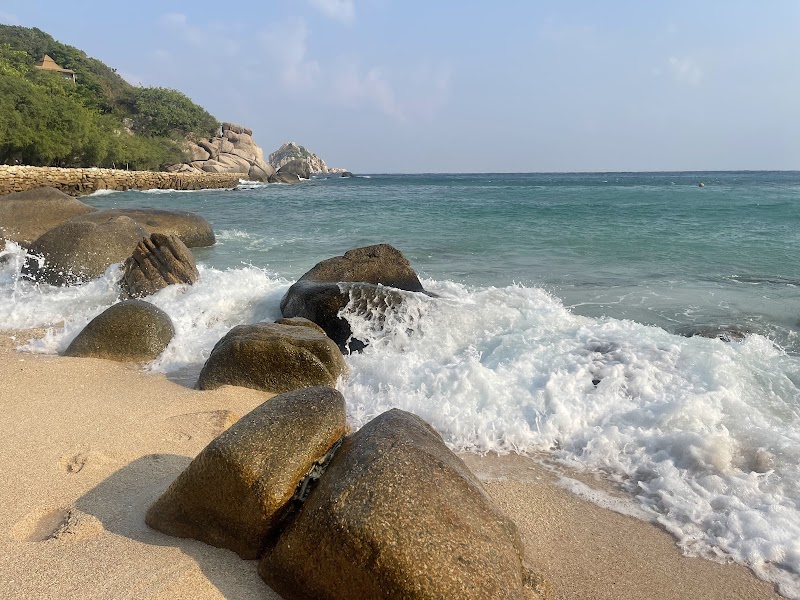
Than Sadet National Park Adventures
Than Sadet National Park on Koh Phangan Island offers pristine coastal scenery, historical significance, and diverse natural habitats, making it a favored destination for hiking, wildlife viewing, and beach exploration.
About Than Sadet National Park

Than Sadet National Park is located on the northeastern coast of Koh Phangan, Thailand. The park is named after the Than Sadet River, which flows through the area and holds historical importance due to visits by Thai royalty, most notably King Rama V. The landscape features a combination of rugged granite hills, dense tropical forests, and sandy beaches along the Gulf of Thailand. The park’s terrain incorporates coastal cliffs and several caves, some of which contain ancient inscriptions and relics. Ecologically, the park supports diverse flora including tropical hardwoods, mangroves, and various species of palms. Wildlife includes monitor lizards, macaques, hornbills, and a variety of marine life along its shores. Outdoor recreation in Than Sadet National Park revolves around scenic hiking trails that lead to viewpoints over the ocean, kayaking along the coast, and snorkeling in nearby coral reefs. The park’s beaches are quiet and less crowded than other areas on the island, appealing to visitors seeking tranquility and natural beauty. Than Sadet also has cultural importance due to its connection with the Thai monarchy, with several sites commemorating royal visits. The park’s appeal lies in its blend of rich history, natural coastal beauty, and opportunities for outdoor activities ranging from moderate hikes to wildlife spotting. It functions as a critical natural area that protects the island’s unique ecosystems, while providing visitors with a relatively untouched outdoor experience compared to more developed tourist areas on Koh Phangan.
Highlights
Than Sadet River and its historic royal gardens
Lan Hin Taek and Lan Hin Phoo natural rock formations
Secluded sandy beaches ideal for swimming and snorkeling
Ancient cave paintings and inscriptions in Than Sadet Cave
Notable Natural Features
Than Sadet River
A freshwater river flowing through the park toward the coast, historically visited by Thai kings for relaxation and fishing.
Lan Hin Taek and Lan Hin Phoo
Unique coastal rock formations sculpted by wind and waves, offering striking landscapes and photo opportunities.
Than Sadet Cave
Caves housing ancient inscriptions and drawings attributed to royal visitors, giving insight into early Thai history.
